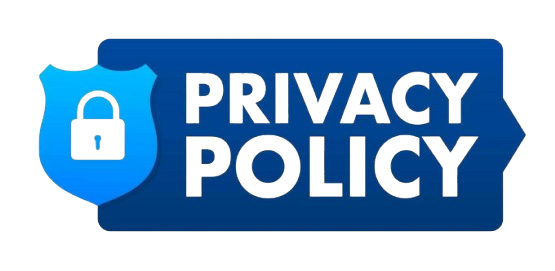The Future of Psychedelic Therapy Billing | 2025 Edition

Blog Outline
- Introduction
- The Regulatory Landscape: How Legal and Clinical Changes Shape Billing
- Understanding the New CPT Codes for Psychedelic Therapy
- Reimbursement Challenges and Insurance Coverage Outlook
- Future Outlook: The Road Ahead for Psychedelic Therapy Billing
- Conclusion
- FAQ – The Future of Psychedelic Therapy Billing
Introduction
Psychedelic-assisted therapy is rapidly moving from controlled research environments into real-world clinical practice, marking one of the most significant transformations in modern mental health care. With the FDA’s anticipated approval of MDMA-assisted therapy for post-traumatic stress disorder (PTSD) and ongoing trials for psilocybin-based depression treatment, mental health providers are preparing for a new therapeutic frontier.
Unlike conventional psychotherapy or medication management, psychedelic therapy involves multi-phase treatment protocols that include preparation, dosing, and post-session integration. This layered care structure introduces new variables in billing — requiring distinct documentation, coordinated provider roles, and specialized psychedelic treatment CPT codes to capture the unique nature of these sessions.
The psychedelic therapy billing process is still in its infancy. The American Medical Association (AMA) has introduced preliminary Category III tracking codes for psychedelic-assisted therapy services to collect utilization data and help pave the way for standardized reimbursement. These codes, however, are not yet reimbursable under Medicare, Medicaid, or private insurance — meaning that clinics currently offering ketamine, psilocybin, or MDMA-based therapies must rely on cash-pay models, superbills, or hybrid coding structures for cost recovery.
For billing teams and clinicians, the challenge isn’t just about claim submission — it’s about future readiness. As new clinical protocols are validated and more states approve psychedelic therapies, understanding the nuances of psychedelic-assisted therapy reimbursement will be critical. Providers who proactively structure their workflows, documentation, and coding around these upcoming psychedelic treatment CPT code updates will be best positioned to integrate these services without compliance risks or payment delays.
Preparation
Psychedlic Journey
Integration
In other words, the shift toward psychedelic medicine reimbursement represents more than a policy change — it’s a complete transformation in how payers define medical necessity, time-based therapy, and collaborative care in behavioral health. Mental health providers who stay ahead of this curve can bridge innovation and financial sustainability, ensuring that groundbreaking therapies remain both accessible and administratively viable
The Regulatory Landscape: How Legal and Clinical Changes Shape Billing
The psychedelic therapy billing process is being shaped as much by regulatory milestones as by clinical innovation. While the research community has already demonstrated the therapeutic potential of MDMA, psilocybin, and ketamine, the U.S. billing infrastructure is still governed by traditional coverage frameworks that weren’t designed for this type of therapy.
FDA and DEA Shifts in 2025
The FDA’s anticipated approval of MDMA-assisted therapy for PTSD represents a turning point for both clinicians and payers. Once approved, this therapy will transition from an investigational to an approved medical treatment, opening the door for psychedelic-assisted therapy reimbursement under federal and commercial programs.
However, regulatory friction remains. The Drug Enforcement Administration (DEA) still classifies MDMA and psilocybin as Schedule I substances, meaning providers can only administer them under approved research protocols. For billing professionals, this means claims must align with federally sanctioned use — a crucial compliance factor that will influence psychedelic treatment CPT code usage and documentation standards in 2025 and beyond.
CMS and SAMHSA’s Role in Defining Reimbursable Care
The Centers for Medicare & Medicaid Services (CMS) and the Substance Abuse and Mental Health Services Administration (SAMHSA) are actively monitoring emerging psychedelic protocols. While CMS hasn’t yet issued coverage policies for psychedelic therapies, it is expected to use Category III CPT code data to assess future reimbursement potential.
These temporary codes allow providers to report psychedelic-related services without immediate payment but help CMS track cost, utilization, and clinical outcomes — all prerequisites for future Medicare coverage decisions.
Similarly, SAMHSA is developing clinical integration frameworks for behavioral health organizations that plan to incorporate psychedelic-assisted psychotherapy once FDA approval is finalized. This coordination suggests that reimbursement policies may evolve faster than previous behavioral health innovations like telepsychiatry or remote therapy.
State-Level Developments Affecting Billing
State legislatures are also influencing the psychedelic medicine reimbursement landscape. States like Oregon, Colorado, and California have introduced or passed measures legalizing psilocybin-assisted care under regulated conditions.
While these programs are currently cash-based, state-level data will be crucial for private payer adoption. Insurers often follow early Medicaid pilot programs or state-funded behavioral health initiatives to determine coverage parameters, which could directly shape how psychedelic therapy billing compliance is defined regionally.
Understanding the New CPT Codes for Psychedelic Therapy
One of the most critical developments shaping the future of psychedelic therapy billing is the introduction of Category III CPT codes — a move that officially recognizes psychedelic-assisted care as an emerging medical service within the U.S. healthcare system. In early 2024, the American Medical Association (AMA) released a new series of temporary tracking codes (0820T–0823T) to capture data on how psychedelic-assisted therapies are being delivered in clinical settings. While these codes do not yet guarantee psychedelic-assisted therapy reimbursement, they represent the essential first step toward coverage under both Medicare and commercial payers.
What Are Category III CPT Codes?
Category III CPT codes are assigned to procedures or services that are new, experimental, or not yet widely adopted. Their purpose is to collect clinical and utilization data before determining whether the service qualifies for permanent Category I billing status — which would make it reimbursable.
For psychedelic-assisted therapy, these temporary codes provide a structure for providers to document treatment protocols, session durations, and multidisciplinary participation. Even without immediate payer reimbursement, consistent reporting under Category III will help CMS and private insurers assess cost-effectiveness, standardize pricing, and eventually establish psychedelic therapy billing guidelines for coverage eligibility.
The New Psychedelic Treatment CPT Codes (0820T–0823T)
| Code | Service Description | Estimated Duration | Who Bills It |
|---|---|---|---|
| CPT 0820T | Preparation and integration sessions before and after dosing | 30–90 minutes | Licensed mental health professional |
| CPT 0821T | Medication administration and monitoring for psychedelic therapy | Up to 6 hours | Prescriber (MD, DO, or NP) |
| CPT 0822T | Individual psychotherapy with psychedelic medication | Variable | Therapist with medical oversight |
| CPT 0823T | Group or co-facilitated psychedelic-assisted session | Variable | Multi-provider team |
How Category III Codes Affect Billing Strategy
Even though these codes don’t currently yield payment, forward-thinking providers are using them to:
- Track costs and service frequency for internal analysis.
- Prepare for future insurance reimbursement once FDA and CMS finalize policy.
- Demonstrate compliance readiness, which will be essential for audit-proof billing in the coming years.
Using psychedelic treatment CPT codes correctly today can help clinics establish credibility and alignment with evolving payer systems. Moreover, it allows billing teams to differentiate psychedelic therapy sessions from traditional psychotherapy, minimizing claim confusion once official coverage begins.
Providers are advised to:
- Include time-based session documentation matching the CPT code definition.
- Record the presence of licensed medical personnel for administration and monitoring codes.
- Note substance type (e.g., MDMA, psilocybin, ketamine) where applicable under compliance-safe documentation standards.
- Store all clinical notes in HIPAA-compliant EHR systems for future audit verification.
Preparing for the Transition to Reimbursable Status
Once FDA approval for MDMA-assisted therapy is granted — expected between late 2025 and 2026 — these Category III codes are likely to be reviewed for promotion to Category I CPT status. That shift will mark the formal start of billable, payer-recognized psychedelic therapy services.
During this transition:
- Medicare may pilot limited reimbursement programs for PTSD-related psychedelic care.
- Private payers will model their coverage criteria based on Medicare’s initial outcomes.
- State Medicaid programs may follow through targeted behavioral health initiatives.
Practices that have already implemented psychedelic therapy billing workflows will have a major advantage — both in operational readiness and payer negotiations.
Reimbursement Challenges and Insurance Coverage Outlook
While the psychedelic therapy billing framework is advancing through structured CPT code development, the reimbursement landscape remains fragmented and uncertain. Providers ready to deliver MDMA, psilocybin, or ketamine-assisted psychotherapy are facing the same dilemma: how to sustain clinical services when coverage is largely absent or inconsistent across payers.
1. Why Reimbursement Is Still Limited
Despite clinical progress and strong advocacy from organizations like MAPS and the American Psychiatric Association, most insurers still categorize psychedelic-assisted care as investigational. That label excludes these sessions from standard reimbursement schedules, leaving providers dependent on cash-based or hybrid billing models.
There are three main reasons for this gap:
- Regulatory classification: As long as MDMA and psilocybin remain under Schedule I, they are considered non-standard treatments, making psychedelic-assisted therapy reimbursement infeasible for federal and private payers.
- Undefined medical necessity: Payers lack consistent criteria for what constitutes “medically necessary” psychedelic therapy, especially since sessions can last up to six hours and require dual-provider participation.
- Insufficient utilization data: CMS and major insurers depend on psychedelic treatment CPT code 0820T–0823T reporting to gauge service patterns before assigning coverage values.
In other words, reimbursement is less about denial and more about data maturity. Until utilization evidence is robust, psychedelic therapy will remain largely self-funded, similar to how telepsychiatry began before parity laws emerged.
2. The Current Billing Reality: Cash Pay and Superbills
Most clinics offering ketamine or MDMA-assisted psychotherapy currently operate on a self-pay structure, often supplemented by detailed superbills for partial out-of-network reimbursement. These itemized receipts list session types, provider credentials, and corresponding psychedelic therapy billing codes 2025, allowing clients to seek reimbursement from insurers independently.
While payers may reject direct claims for psychedelic interventions, superbills can sometimes yield partial compensation for the “psychotherapy” or “integration” portion of care, depending on the patient’s plan. Transparent billing workflows like these are helping providers build trust while maintaining administrative compliance until broader payer recognition occurs.
3. Expected Coverage Timeline (2025–2027)
Based on payer behavior in similar emerging treatments, the likely trajectory is:
| Year | Milestone | Reimbursement Status |
|---|---|---|
| 2025 | FDA approval of MDMA-assisted therapy for PTSD | Category III codes in use; no direct coverage |
| 2026 | CMS pilot reimbursement programs begin | Limited Medicare reimbursement for approved conditions |
| 2027 | Commercial insurer adoption phase | Partial coverage under expanded behavioral health benefits |
By 2027, major commercial payers may introduce psychedelic-assisted therapy reimbursement policies under revised behavioral health benefits, but only if cost-effectiveness and compliance data align with Medicare benchmarks.
Future Outlook: The Road Ahead for Psychedelic Therapy Billing
The coming years will likely define how the healthcare system reconciles clinical innovation with financial infrastructure. Psychedelic-assisted therapy has already demonstrated clinical promise; what remains is building a sustainable billing and reimbursement ecosystem capable of supporting it. As the psychedelic therapy billing framework continues to evolve, three forces will drive its future: regulatory clearance, payer policy adaptation, and data-driven coding validation.
Medicare as the Catalyst for Coverage
Historically, Medicare has set the pace for reimbursement in emerging areas of behavioral health, from telepsychiatry to substance use treatment integration. The same pattern is expected for psychedelic-assisted therapy reimbursement once MDMA receives full FDA approval.
The Centers for Medicare & Medicaid Services (CMS) will likely use the existing Category III CPT code data (0820T–0823T) to pilot early coverage models. These pilot programs may begin by focusing on conditions such as post-traumatic stress disorder (PTSD), where MDMA therapy shows strong clinical efficacy. The results of these programs — particularly their cost-benefit analyses and safety outcomes — will guide the broader payer landscape.
Transition from Category III to Category I Codes
The psychedelic treatment CPT codes transition from Category III to Category I will mark the official start of payer-recognized coverage. This transition depends on three key data points: volume of utilization, peer-reviewed evidence, and demonstrated clinical outcomes.
The AMA evaluates new service codes annually, and once sufficient data supports routine use, they are upgraded. For psychedelic-assisted therapy, this could occur as early as 2026 or 2027 — assuming continued data collection and FDA approvals.
This upgrade will fundamentally alter the psychedelic therapy billing process, allowing claims to be processed through standard payer systems, assigned reimbursement values, and audited for compliance just like any other behavioral health service.
Private Payer Adoption and Policy Formation
Commercial insurers are already preparing for the inevitable integration of psychedelic-assisted treatments. Early industry analyses show that payers are developing internal task forces to evaluate both clinical risk and reimbursement feasibility. While these committees have yet to release official coverage criteria, they are actively modeling policies based on data from MAPS’ MDMA trials and state-regulated psilocybin programs in Oregon and Colorado.
The first wave of psychedelic therapy billing readiness among private insurers will likely emerge through “behavioral health innovation benefits” — supplemental coverage tiers for evidence-based, high-touch therapies. These benefit structures will test pricing, documentation standards, and patient outcomes before broader inclusion across networks.
For clinics and billing providers, this will be a critical moment. Insurers will favor practices that already demonstrate compliance with psychedelic-assisted therapy documentation requirements and Category III code reporting. Early alignment with payer data systems could even position certain networks as preferred providers in this emerging specialty.
Technology, AI, and Data-Driven Billing
The next phase of psychedelic therapy billing framework 2025 will be defined by technology. Electronic Health Record (EHR) systems are evolving to include code-specific templates for psychedelic-assisted sessions, automating time tracking, integration notes, and provider roles.
Artificial intelligence will further improve compliance by flagging incomplete documentation or inconsistencies between CPT code selection and session data.
Long-Term Vision: A Sustainable Reimbursement Ecosystem
Within the next five years, the psychedelic-assisted therapy reimbursement process will likely resemble the trajectory of telehealth: slow initial acceptance, followed by rapid normalization once data validates both efficacy and cost savings.
Psychedelic therapies, particularly MDMA- and psilocybin-assisted sessions, may prove to reduce hospital readmissions, improve depression outcomes, and lower long-term healthcare costs. These factors will drive insurers to recognize the financial and clinical value of coverage.
Preparing for the Shift Now
Although mainstream reimbursement is still on the horizon, providers should not wait for formal coverage announcements. Now is the time to refine workflows, establish documentation standards, and adopt coding precision as part of everyday operations. Early preparation in MDMA therapy billing and related protocols will ensure that once payers open their portals, your practice can bill compliantly and efficiently without financial disruption.
The most successful practices won’t be those that wait for the change — they’ll be the ones already billing accurately, documenting thoroughly, and training continuously when that change arrives
Conclusion
The transformation of mental healthcare through psychedelic-assisted therapy is not only a scientific breakthrough but also an administrative revolution in progress. The psychedelic therapy billing process represents a new kind of challenge — one that requires collaboration between clinicians, billing experts, and policymakers. Unlike traditional therapy, these treatments demand longer sessions, multidisciplinary involvement, and detailed compliance documentation. Each step, from preparation to integration, must be captured accurately using the appropriate psychedelic treatment CPT codes to establish transparency and clinical validity.
At this stage, most psychedelic-assisted therapies remain outside traditional payer systems. Yet the groundwork is unmistakably being laid. With Category III codes (0820T–0823T) now in use, the first layers of structure are already forming. Over the next few years, as utilization data accumulates and CMS evaluates clinical outcomes, these codes will likely transition into permanent reimbursement pathways under Category I status. When that happens, clinics that have already implemented standardized documentation, coding discipline, and compliance protocols will be first in line for successful psychedelic-assisted therapy reimbursement.
For mental health providers, the goal now is readiness. The practices that thrive in this transition will be those that treat billing not as an afterthought, but as an extension of patient care — a means to ensure sustainability, fairness, and continuity. By aligning clinical excellence with administrative precision, providers can help shape the next chapter of behavioral health: one where transformative therapies like MDMA- and psilocybin-assisted care are accessible to patients not only through scientific approval but through financial viability.


